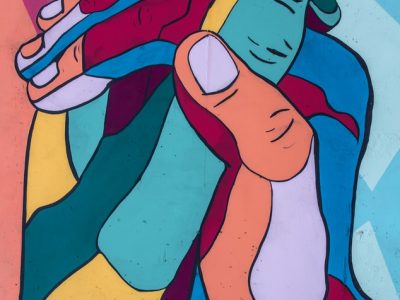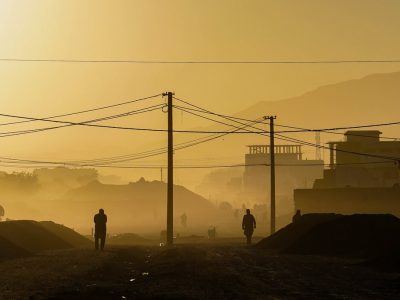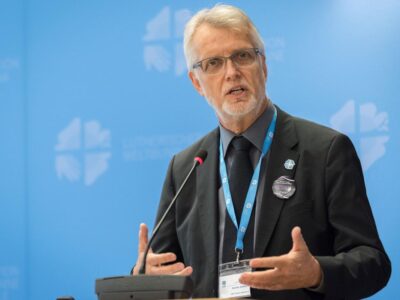COP 20 – Lima, Perù
Si è conclusa a Lima, Perù, la ventesima Conferenza delle Parti (COP) e il decimo incontro tra le parti (CMP), un appuntamento che di anno in anno costringe le agende delle 195 nazioni unite sul tema del cambiamento climatico e della necessarie riduzione delle emissioni.
Negli stessi giorni tra l’altro si è tenuto il Forum per l’innovazione sostenibile (SIF 2014) in collaborazione con l’UNEP e, dall’8 all’11 dicembre nel Parque de Lima, in parallelo alla COP20, si è svolto il Summit dei popoli (Cumbre de los pueblos) sui cambiamenti climatici.
Il documento uscito dalla Conferenza si chiama ‘Appello di Lima per l’azione climatica’. Elemento centrale dell’accordo è innanzitutto la predisposizione della prima bozza di lavoro del possibile accordo di Parigi. Un documento di 37 pagine allegato alla decisione di Lima.
Esso esprime innanzitutto lo sforzo di adeguare questo processo ai mutamenti della distribuzione della capacità produttiva e di consumo dei popoli sul pianeta e di portare i Governi ad assumere impegni verificabili.
Rispetto al passato infatti è stata superata negli ultimi anni la netta differenziazione tra Paesi sviluppati e in via di sviluppo. Adesso entrano in gioco in modo più fluido concetti come la responsabilità storica sulle emissioni, la capacità di intervento e le specifiche circostanze nazionali.
Nel merito dell’accordo, è stato eliminato il sistema di valutazione previsto per il 2015 degli impegni di riduzione delle emissioni presi su base volontaria, a favore di un approccio bilanciato degli aspetti di mitigazione delle emissioni con quelli di adattamento. In sostanza i Paesi in via di sviluppo si assicurano di avere degli aiuti economici dai Paesi più ricchi per introdurre piani e azioni in grado di limitare i danni causati dal cambiamento climatico.
Questa COP ha infatti rafforzato i Piani nazionali di adattamento (nap), i programmi che i Paesi devono presentare il prossimo anno con i relativi meccanismi di finanziamento.
Ad azioni di adattamento è infatti destinato Il 50% del Fondo Verde del Clima pari a 10,2 miliardi rispetto all’ obiettivo prima della Conferenza di 10 miliardi.
Alla Cop20 è stato anche avviato il Lima Information Hub, una banca dati che raccoglie il risultati ottenuti dal piani strategici nazionali, li riassume in sistemi informativi e li conserva, permettendo maggiore trasparenza nel processo di pagamento in base ai risultati.
Per quanto riguarda il tema “Loss and Damage” -il meccanismo creato nel 2013 per i Paesi nei quali gli impatti del cambiamento climatico sono così grandi da superare le capacità di risposta delle popolazioni per affrontarli-, si è riusciti ad approvare sia il piano di lavoro iniziale biennale che la composizione del Comitato esecutivo.
Il tema nodale in previsione dell’accordo di Parigi resta però ancora il bilanciamento degli impegni all’interno del blocco dei paesi più ricchi e rispetto alle economie emergenti, tenendo in considerazione che sulla base delle decisioni attuali tali impegni saranno stabiliti su base volontaria dai diversi Paesi.
Un altro risultato di questa Cop20 rivendicato dal Perù è lo sviluppo del Plan de Trabajo de Lima in tema di genere: per la prima volta una COP esorta le parti a promuovere l’effettiva partecipazione delle donne negli ambiti dell’Unfccc, rafforzarne il lavoro per l’empowerement il relazione all’adattamento ed alla mitigazione.
Ancora per la prima volta, 17 Paesi sviluppati (tra i quali ci sono Unione europea e Stati Uniti) hanno condiviso una stima dei livelli del progresso nella riduzione delle emissioni, e una valutazione della tendenza delle loro emissioni di gas serra dal 1990 fino a 2012, proiezioni ed obiettivi delle stesse a livello di tutta l’economia.
Infine ampio spazio è stato dato al tema della riduzione delle emissioni attraverso la riforestazione (meccanismo Red+). 4 Paesi hanno presentato livelli di riferimento o linee guida. Da almeno 40 anni, infatti, sono stati distrutti almeno 42 miliardi di alberi, pari a 2000 alberi al minuto. E infatti proprio la scorsa primavera è stato lanciato il progetto Tresfronteras a tutela dell'Amazzonia.
Ricordiamo che la concentrazione di carbonio nel 2013 è stata pari a 395 ppm ovvero, la concentrazione più alta mai raggiunta negli ultimi 800 mila anni, nonché la più alta anche dagli inizi del 1750, ovvero epoca della Rivoluzione industriale, quando era pari a 277 ppm. Sempre nel 2013 la deforestazione ha contribuito all'8 per cento delle emissioni globali.
E proprio nei giorni in cui aveva luogo la COP 4 attivisti venivano uccisi per aver difeso la loro comunità contro la deforestazione illegale. I leader del popolo Ashéninka di Saweto nell’ambito delle attività collegate alla Conferenza hanno chiesto al governo peruviano, di perseguire la giustizia, e nel caso, di adottare misure per proteggere i difensori dei diritti ambientali e garantire il diritto alla terra per le comunità indigene, questione al cuore di questo conflitto.
Come sempre una delegazione del Consiglio ecumenico era presente. Essa ha espresso disappunto proprio in relazione alla accentuata attenzione sull’adattamento, una direzione di marcia che consente di eludere o marginalizzare l’impegno rispetto alle cause del cambiamento climatico.
Personalmente ritengo che questo indirizzo delle COP pur esprimendo il sentire di questa stagione della storia umana governata da mamona e improntata da valori e pratiche di morte per tutta la creazione, costituisce comunque uno spazio di azione da stimolare e insieme da proteggere.
Per le chiese europee l’appuntamento di Parigi 2015 sarà come è stato per Copenhagen una occasione di mobilitazione alla quale stanno già lavorando.
Per concludere, a 10 anni dalla Assemblea della Alleanza Riformata Mondiale che ha votato una Confessione di fede che ancora anima il nostro impegno, vorrei ricordarne alcuni passaggi:
- Abbiamo udito che la creazione continua a gemere in travaglio, aspettando la sua liberazione (Rom. 8,22). Siamo messi in questione dalle grida di coloro che soffrono e dal danno che è inferto al resto del creato.
- I segni dei tempi sono diventati ancor più allarmanti e devono essere riconosciuti. Le cause prime dell’imponente minaccia che è rivolta alla vita derivano sopra ogni altra cosa da un sistema economico ingiusto, difeso e protetto dal potere politico e militare. I sistemi economici sono una questione di vita o di morte.
- Crediamo che Dio abbia stabilito un patto con la creazione intera (Gen. 9.8-12). Sulla terra Dio ha chiamato alla vita una comunità fondata sulla prospettiva della giustizia e della pace. Il patto è un dono gratuito che non è in vendita sulla piazza del mercato (Is. 55,1). Esso si traduce in un’eco-nomia del gratuito per l’intero creato in quanto casa di tutti. Gesù mostra che si tratta di un patto inclusivo in cui i poveri e i marginalizzati sono i destinatari (partners) preferenziali, e ci chiama a porre la giustizia per «questi minimi» (Mt. 25,40) al centro della comunione di vita. Tutta la creazione è benedetta e inclusa in questo patto (Osea 2,18ss.).
- Nel confessare insieme la nostra fede, stringiamo un patto in obbedienza alla volontà di Dio come un atto di fedeltà in un rapporto di mutua solidarietà e di reciproca responsabilità (accountability). Questo patto ci lega insieme per lavorare per la giustizia nell’economia e nell’ecologia nel nostro comune ambito globale così come nei nostri contesti regionali e locali.
The talks concluded with 195 countries agreeing to the Lima Call for Climate Action. The document paves way for a more definitive international climate agreement to be tabled at COP 21, which will be held in Paris in 2015. While United Nations Secretary General Ban Ki-moon hailed the Lima talks as paving meaningful way to COP 21 in Paris, the Conference of European Churches expresses deep ambiguity and frustration with the Lima outcomes.
The Lima negotiations failed in their ambitious aims to restore trust in the UNFCCC process and facilitate progress towards a Paris agreement. Hopes for a robust and cohesive action out of Lima were high, yet participating governments left much undone in advance of the Paris talks. The decisions from Lima show a disheartening dilution of global commitment to addressing catastrophic climate change and an ongoing marginalisation of those most affected by climate change.
At this juncture, CEC renews its commitment to be a unifying presence for the churches in Europe and beyond in delivering a meaningful, faith-based response to climate change. In reflecting on the Lima talks, CEC General Secretary Guy Liagre remarks, “We hope that the days and months leading to the Paris talks will see a strengthened and coordinated church response to the devastation of God’s good creation and the oppression of those made poor by climate change.”
WCC delegation member Henrik Grape, Church of Sweden, echoes this sentiment, “Church presence at meetings of this kind is about underlining solidarity, justice, and equity.”
Faith can be a great carrier of hope and source of courage in the work of transforming the world. “The CEC takes seriously its mission in working on climate justice, which our governing board reaffirmed just last week,” Liagre notes, “Our efforts will be intensified on the way to the COP meeting in Paris next year.”
Faith voices for climate justice
On 9 December at the University Antonio Ruiz de Montoya, the WCC programme executive for Care for Creation and Climate Justice and head of the WCC delegation at COP 20, Dr Guillermo Kerber, moderated a roundtable on Eco-theology and inter-religious dialogue as part of the initiatives of the conference “COP 20 – Perspectives from the South”. Two members of the WCC delegation at COP 20 were among the list of six speakers.
Rev. Dr Grace Ji-Sun Kim, visiting researcher at Georgetown University in the USA and member of the WCC’s Working Group on Climate Change, shared that her studies on comparative theology are helping her identify key concepts of the Christian faith that are also fundamental to other religious expressions, such as wisdom and the understanding of the Holy Spirit. “Among the issues that should unite us, there is also a strong common concern about sustainability as a faith value,” she added.
For Rev. Dr Henrik Grape, officer for sustainable development at the Church of Sweden, one of the important issues at stake in Lima is that several levels of the society, like churches and faith-based organizations, can take part on the process of changing structures that harm the environment. “It is time for faith expressions to be more proactive in the discussion about the choices made by humanity,” he said.
COP 20 will go on until Friday 12 December and is expected to forge a solid path towards COP21-CMP11, at Paris, France in 2015. The conference aims to come up with the desired legally binding instrument to regulate greenhouse gas emissions, including effective financing tools for adaptation of the most vulnerable communities and regions. Churches, faith communities and civil society are pleading, requesting, demanding: “Climate Justice for All”
Climate, Faith and Hope: Faith traditions together for a common future
As representatives from different faith and religious traditions, we stand together to express deep concern for the consequences of climate change on the earth and its people, all entrusted, as our faiths reveal, to our common care. Climate change is indeed a threat to life, a precious gift we have received and that we need to care for.
We acknowledge the overwhelming scientific evidence that climate change is human-induced and that, without global and inclusive action towards mitigation and unless fully addressing its fundamental causes, its impacts will continue to grow in intensity and frequency. At the same time, we are ready to dialogue with those who remain skeptical.
In our communities and thanks to the media, we see the manifestations of climate change everywhere. From our brothers and sisters around the world, we hear about its effects on people and nature. We recognize that these effects disproportionally affect the lives, livelihoods and rights of poorer, marginalized and therefore most vulnerable populations, including indigenous peoples. When those who have done the least to cause climate change are the ones hardest hit, it becomes an issue of injustice. Equitable solutions are urgently needed.
We recognize that climate change stands today as a major obstacle to the eradication of poverty. Severe weather events exacerbate hunger, cause economic insecurity, force displacement and prevent sustainable development. The climate crisis is about the survival of humanity on planet earth, and action must reflect these facts with urgency.
Therefore, as faith leaders, we commit ourselves to the promotion of disaster risk reduction, adaptation, low carbon development, climate change education, curbing our own consumption patterns and reducing our use of fossil fuels. Based on our spiritual beliefs and our hope for the future, we commit to stimulating consciences and encouraging our peers and communities to consider such measures with urgency.
We share the conviction that the threats of climate change cannot be curbed effectively by a single State alone but only by the enhanced co-operation of the community of States, based on principles of mutual trust, fairness and equity, precaution, intergenerational justice and common but differentiated responsibilities and capabilities. We urge the rich to support the poor and the vulnerable significantly and everywhere, especially in Least Developed Countries, Small Island States and Sub-Saharan Africa. Significant support would include generous financial resources, capacity building, technology transfer and other forms of co-operation.
We encourage Heads of State and Ministers attending the Climate Summit to announce pledges for the Green Climate Fund, including commitments to increase them thereafter, to establish new partnerships for climate resilience and low carbon development, and to assure access to renewable energies for all people.
As people of faith, we call on all governments to express their commitment to limit global warming well below 2° Celsius. We emphasize that all States share the responsibility to formulate and implement Low Carbon Development Strategies leading to de-carbonization and the complete phase-out of fossil fuels by mid-century.
Consequently we encourage world political and economic leaders to exercise their leadership during the Climate Summit by announcing joint actions such as important short-term emission cuts, phasing out fossil fuel subsidies, coal caps or coal divestment, forest protection, increased energy efficiency in construction and transportation, and other concrete steps. We further call on all governments to identify medium and long-term adaptation needs and to develop strategies to address them based on country-driven, gender-sensitive and participatory approaches to better manage residual loss and damage due to adverse climate impacts.
Ultimately we request all States to work constructively towards a far-reaching global climate agreement in Paris in 2015, building on transparency, adequacy and accountability. The new agreement must be:
- ambitious enough to keep temperature from rising well below 2° Celsius;
- fair enough to distribute the burden in an equitable way; and
- legally binding enough to guarantee that effective national climate policies to curb emissions are well funded and fully implemented.
As religious representatives and citizens in your countries, we hereby commit ourselves to address the climate change threat. We continue to count on your leadership, and we encourage and expect you to make the right decisions. When difficult decisions need to be taken for the sustainability of the earth and its people, we are ready to stand with you. We pray for you and for all humanity in caring for the earth.
New York, 21 September 2014
Since the 1970s, the WCC has helped develop the concept of sustainable communities. Since the United Nations Framework Convention on Climate Change was adopted in 1992, the WCC has been present at all UN climate change conferences.
Over the years, the WCC helped foster a movement for climate justice touching millions of people around the world, including thousands of congregations who rang their bells for fair and ambitious climate action in 2009 and are connected in prayer each year during Time for Creation.
It's time for climate justice
COP 20 is another step in the long path to attain a just and ambitious binding instrument to replace the Kyoto Protocol (signed in 1997). It aims strongly to mitigate the greenhouse gas emissions and adapt to the already occurring, appalling, climate change scenario that is harming millions of human beings around the world.
Alongside COP 20, civil society organizations, networks, social movements, research centres and communities will be organizing the Peoples’ Summit on Climate Change. The event will be held from 9 to 12 December.
The Methodist Church of Peru (IMP), a WCC member church, is fully involved in the activities related to the COP 20 and the Peoples’ Summit. On 8 December, the IMP will promote “Methodist Day” – an initiative that will include workshops on practical issues such as the recycling of plastic and healthy cooking. Music concerts and theatre presentations will be offered at the occasion. The highlight of the programme is a panel on the theme "Caring for Creation" which will include participation of regional and international ecumenical organizations and churches.
Through its local member churches in Lima, the WCC is adhering to the religious programmes organized by the Inter-religious Council of Peru - Religions for Peace, based in Lima at the headquarters of the Secretariat and General Direction of Religions for Peace (RfP) for Latin America and the Caribbean.
On the first day of COP 20, the delegation of the Lutheran World Federation (LWF), formed by young adults from different parts of the world, held an event to invite people to pray and meditate for good outcomes from the conference. The event also showed support for the Fast for the Climate campaign, an interfaith initiative to build support for actions that counter climate change. The LWF is a partner ecumenical organization of the WCC.
A statement on climate justice from regional ecumenical organizations and churches will be finalized and shared with the delegates of COP 20 and the participants of the Peoples’ Summit. The document will highlight concern over the effects of climate change that have been impacting populations in Latin America in the recent years.
An official delegation of the WCC, formed by staff members, representatives of member churches and partner organizations, will attend the second week of the conference in Lima giving special attention to the continuation of work based on outcomes of the Interfaith Summit on Climate Change promoted by the WCC and Religions for Peace last September in New York.
Dr Guillermo Kerber, WCC programme executive for Care for Creation and Climate Justice stressed that “COPs are an opportunity to strengthen ecumenical and interfaith advocacy and to enhance the work churches are doing on environment and climate change”.
“Climate, Faith and Hope: Faith traditions together for a common future”, the final statement of the Interfaith Summit will be officially presented at COP20 on December 11th by the WCC delegation.
 Clicca QUI per la versione in PDF
Clicca QUI per la versione in PDF
Cosa fa la FCEI
Ecumenismo
Giovanni 17:21
ULTIMI COMUNICATI
Amate dunque lo straniero, poiché anche voi foste stranieri nel paese d'Egitto








